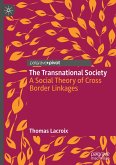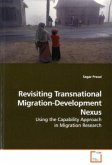In 2005 the largest ever anti-poverty movement came
together under the banner of Make Poverty History. In
Civil Society and the Dynamics of Transnational
Alliances Janel Smith investigates how transnational
civil society (TCS) has organized to influence global
policy-making. Through a case study analysis of the
activities of Make Poverty History in the lead up to
the 2005 Group of Eight Summit, Janel Smith gleans
insights into the dynamics of TCS alliances. This
book sheds new light on the complexity of
relationships among civil society actors and the
unique challenges they face in forming partnerships
by examining these through the lens of Inter-Group
Conflict Theory. It develops deeper knowledge of the
factors that are relevant in the organization and
governance of TCS partnerships and documents several
best practices. TCS is conceptualized through the
framework of the Social Economy to call attention to
the socio-political and socio-economic activities and
impacts of TCS alliances. Ultimately, this work asks
how can stronger relationships between members of TCS
alliances be developed that will enable TCS to
effectively confront newly (re)emerging challenges of
the 21st century.
together under the banner of Make Poverty History. In
Civil Society and the Dynamics of Transnational
Alliances Janel Smith investigates how transnational
civil society (TCS) has organized to influence global
policy-making. Through a case study analysis of the
activities of Make Poverty History in the lead up to
the 2005 Group of Eight Summit, Janel Smith gleans
insights into the dynamics of TCS alliances. This
book sheds new light on the complexity of
relationships among civil society actors and the
unique challenges they face in forming partnerships
by examining these through the lens of Inter-Group
Conflict Theory. It develops deeper knowledge of the
factors that are relevant in the organization and
governance of TCS partnerships and documents several
best practices. TCS is conceptualized through the
framework of the Social Economy to call attention to
the socio-political and socio-economic activities and
impacts of TCS alliances. Ultimately, this work asks
how can stronger relationships between members of TCS
alliances be developed that will enable TCS to
effectively confront newly (re)emerging challenges of
the 21st century.








